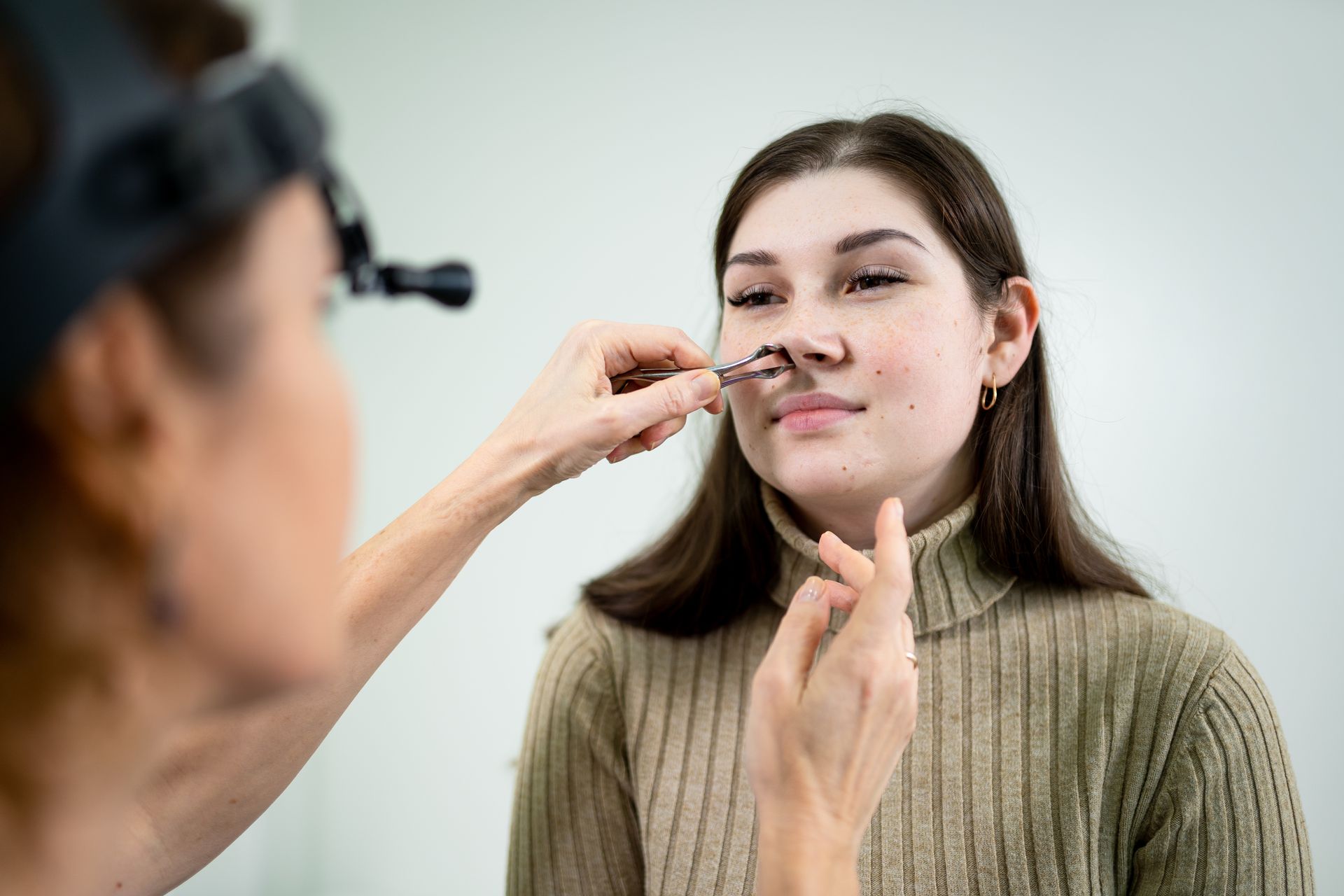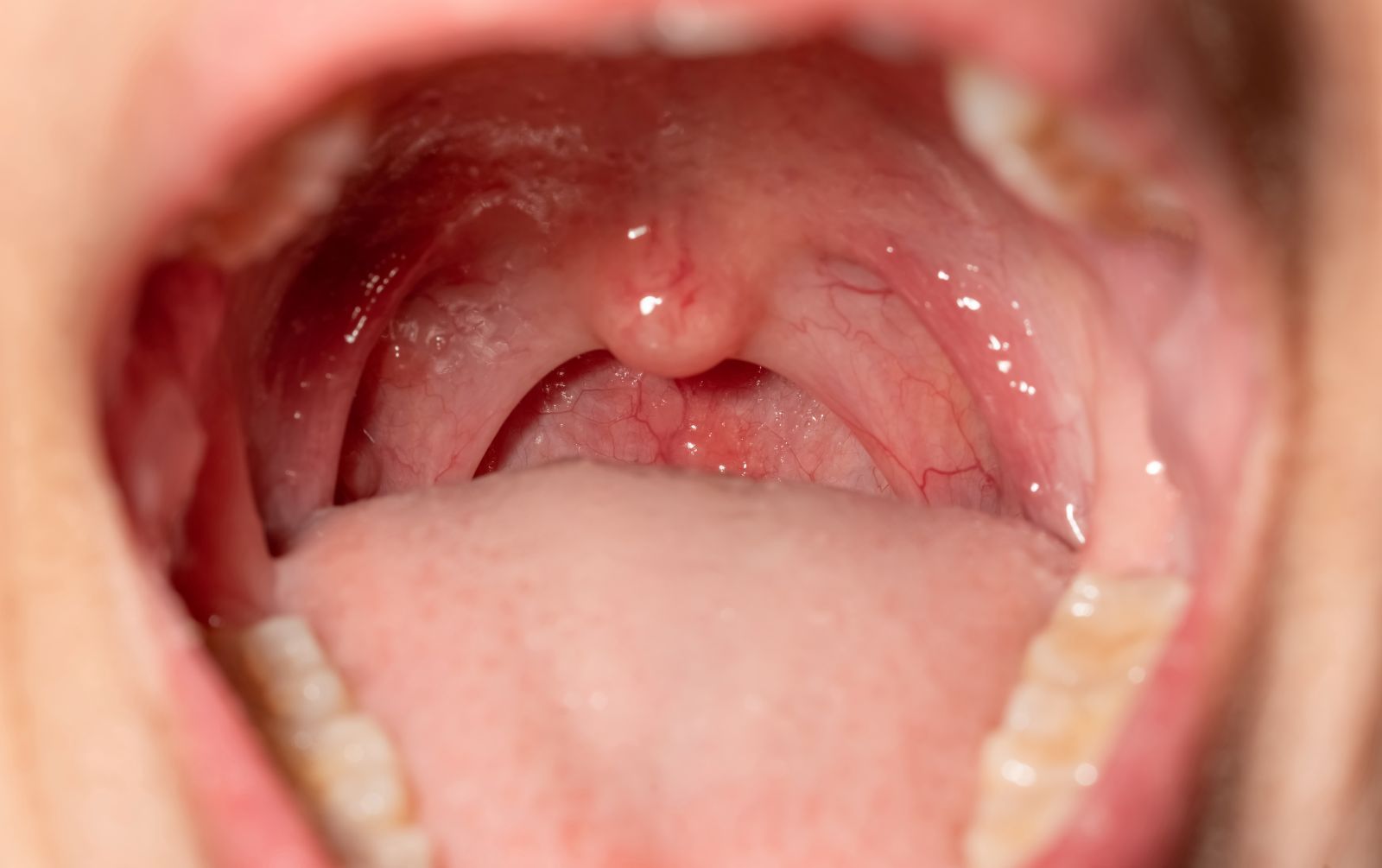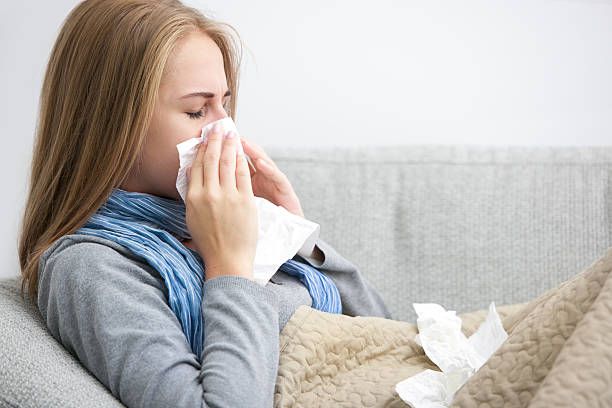Can Allergies Cause a Sore Throat?
Most people immediately think of sneezing, itchy eyes, and stuffy noses when allergies strike. But here’s a surprising twist: allergies can also lead to a sore throat! Read on to learn how allergies can cause throat discomfort and how to manage this symptom effectively.
Understanding Allergies
According to the Asthma and Allergy Foundation of America, approximately 50 million Americans experience some form of allergies each year. Allergies occur when the immune system reacts to a substance, known as an allergen, that it mistakenly identifies as harmful. Common allergens include pollen, dust mites, pet dander, mold, and certain foods. When you come into contact with an allergen, your body releases chemicals like histamine, which can trigger various allergic symptoms, such as sneezing, itching, nasal congestion, rashes, and even anaphylaxis in severe cases.
How Allergies Cause a Sore Throat
- Postnasal Drip: One of the primary ways allergies can lead to a sore throat is through postnasal drip. When people experience allergy symptoms, their bodies produce excess mucus to flush out the allergens. This mucus can drip down the back of the throat, causing irritation and discomfort. Consequently, they may feel a scratchy or sore throat.
- Inflammation: Allergens can trigger inflammation in the throat and nasal passages. This inflammation can make the tissues in the throat more sensitive and reactive, leading to soreness, especially during swallowing or talking.
- Mouth Breathing: Allergies often cause nasal congestion, making it difficult for many individuals to breathe through their nose. As a result, they may resort to mouth breathing, which can dry out the throat and contribute to irritation and soreness.
Symptoms of Allergy-Induced Sore Throat
When allergies are the cause of a sore throat, the patient may experience additional symptoms that can help distinguish it from other causes of throat discomfort. These may include:
- Itchy or watery eyes
- Sneezing
- Runny or stuffy nose
- Coughing
- Fatigue
If a sore throat is accompanied by fever, severe pain, or swollen glands, it may indicate a different underlying condition, such as a viral or bacterial infection.
Managing Allergies and Sore Throat
If allergies are suspected to be the cause of a sore throat, there are several steps that can be used to manage the symptoms:
- Avoid Allergens: Identifying and avoiding allergens that trigger symptoms is essential. This may include staying indoors on high pollen days, using air purifiers, or keeping living spaces clean from dust and pet dander.
- Stay Hydrated: Drinking plenty of fluids can help thin mucus and soothe a sore throat. Warm broth or teas with honey may additionally provide comfort.
- Use Saline Nasal Sprays: Saline sprays can help moisturize nasal passages and reduce postnasal drip, alleviating throat irritation.
- Antihistamines: Over-the-counter antihistamines can help reduce allergy symptoms by blocking histamine production. It is advisable for individuals to consult with a healthcare professional before starting any new medication.
- Humidifiers: Using a humidifier at home can add moisture to the air, which may soothe an irritated throat and reduce congestion.
- Consult an Allergist or an ENT Provider: If symptoms persist or worsen, patients should consider consulting an allergist or an ENT provider for further evaluation and potential allergy testing. These specialists can provide personalized recommendations and treatment options tailored to their specific needs.
When it comes to managing allergies and their impact on sinus and nasal health, it's essential to consult with an ear, nose, and throat (ENT) specialist, especially if symptoms are persistent. Allergies can significantly affect nasal passages and sinuses, leading to discomfort and additional complications.
For those in the Kentuckiana region, Kentucky Ear, Nose and Throat provides comprehensive and compassionate care for ear, nose, and throat issues related to allergies. Their experienced team is dedicated to helping patients understand their symptoms and develop effective treatment plans. Don’t let allergies hold you back—contact Kentucky ENT today to schedule an appointment and take the first step toward relief!













